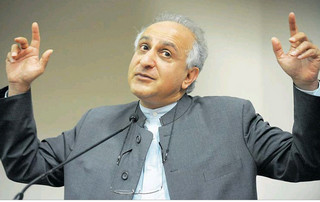
Transformation in higher education is much more than changing demographics in staff and student numbers, and entails historically black universities "catching up to" the facilities available at former white institutions, says Rhodes University rector and vice-chancellor Saleem Badat.
He was at the University of the Western Cape to deliver the 10th annual vice-chancellor's Mwalimu Julius Nyerere lecture on lifelong learning. Nyerere, first president of Tanzania, believed in the importance of learning throughout a person's life. Badat said transformation in higher education was one of the concepts and processes associated with change.
"The changing of demographics, numbers and proportions of students and staff, and pursuing and achieving race, gender and disability equity goals are important aspects of transformation. "So, too, are blacks 'catching up' with whites in terms of pass rates, graduation rates and participation rates in higher education, and historically black universities 'catching up' with historically white universities with respect to facilities and the like. "But transformation cannot be reduced merely to such issues - much, much more is entailed."
He said transformation meant meaningful equity of access, opportunity and success for working-class and poor people. Badat said of transformation: "It means creating institutional cultures that genuinely respect and appreciate difference and diversity - whether class, gender, national, linguistic, religious, sexual orientation, epistemological or methodological in nature. "At a fundamental level, transformation is building, in the context of the fractures and fissures of our society, new and different kinds of social relationships.
"It is acting and doing things in new and different ways, being open to making the 'natural' strange, and rethinking and changing how we think about ourselves and others, about conventional wisdoms like quality and academic excellence, about core aspects of university life and about our challenges, possibilities and constraints."
He said there were a number of reasons why universities might find it difficult to provide lifelong learning options. "Despite commitment to lifelong learning in higher education, in the context of possibly inadequate financial resources university leadership may face profound social and political dilemmas and need to make difficult and unenviable choices related to the nature, scope and extent of sustainable lifelong learning in the university."
Badat had said he wished to explore the connections between lifelong learning and higher education in relation to transformation. michelle.jones@inl.co.za
Caption: 'CATCH-UP' TIME: Saleem Badat, rector and vice-chancellor of Rhodes University, delivers the 10th annual vice-chancellor's Mwalimu Julius Nyerere Lecture on lifelong learning at UWC. He spoke about the connections between lifelong learning and higher education, relating to transformation. Picture by: JEFFREY ABRAHAMS
Article Source: CAPE TIMES (Second Edition)
